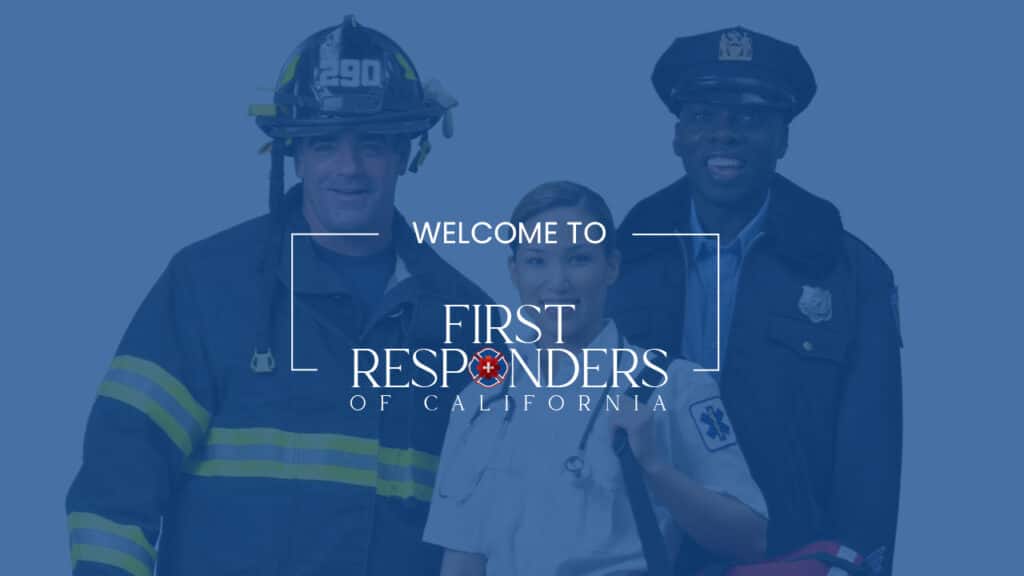
An Intensive Outpatient Program (IOP) is a structured mental health treatment delivering intensive care through telehealth therapy sessions, typically 3-4 hours per day, three to five days a week. Unlike inpatient programs requiring 24-hour supervision, IOPs allow participants to return home each evening, offering a balance for first responders needing more support than weekly outpatient visits but who can manage daily life outside treatment.
The program includes group therapy, individual counseling, psychoeducation, critical incident debriefs, and medication-assisted options, focusing on skill-building, symptom management, and relapse prevention for conditions like PTSD, anxiety, depression, trauma-related disorders, or substance use disorders.
At First Responders of California, our IOP is tailored to accommodate demanding schedules, with same-day admissions available to start care promptly. Spanning 4-6 weeks, the program emphasizes evidence-based practices, fostering emotional regulation, resilience, and sobriety. Many participants report significant symptom reduction, improved workplace performance, reduced relapse rates, and a renewed sense of control over their mental health and well-being.
Our IOP incorporates evidence-based therapies tailored to first responders, drawing on years of expertise in mental health support. These techniques are selected based on individual assessments to address specific needs, such as processing cumulative trauma or managing mental triggers. The following table outlines key therapies offered, with detailed explanations to highlight their benefits for first responders:
This therapy rewires negative thought patterns to effectively manage stress, anxiety, and depression, helping first responders challenge distorted thinking from traumatic experiences and develop healthier coping mechanisms for daily challenges.
Builds emotional regulation and coping skills for navigating intense emotions, relationships, and impulsive behaviors often seen in substance use disorders, incorporating mindfulness to foster balance and reduce self-destructive patterns in high-stress professions.
Addresses the cumulative impact of work-related trauma, such as line-of-duty incidents, promoting healing through targeted interventions that validate experiences and build resilience, crucial for preventing burnout and secondary trauma in first responders.
Fosters resilience through mindfulness and value-driven actions, encouraging acceptance of difficult emotions while committing to meaningful goals, ideal for first responders reconnecting with purpose amid PTSD or mental health treatment.
Processes traumatic memories to reduce their emotional impact, particularly effective for PTSD by mimicking REM sleep to rewire brain responses, allowing first responders to move forward without being haunted by past events.

Our Intensive Outpatient Program provides significant advantages for first responders seeking mental health help, offering intensive support while allowing participants to maintain their professional and personal routines. These benefits make IOP an ideal choice for California’s frontline workers facing occupational stressors like trauma and substance use.
The following table outlines six key benefits of our IOP:
Sessions designed to fit around shift work and emergencies, accessible from anywhere in California to minimize disruption to daily responsibilities.
Proven methods like CBT and DBT to effectively manage PTSD, anxiety, depression, and substance use disorders, promoting long-term recovery.
Culturally competent treatment addressing unique traumas, such as critical incidents and moral injury, with peers who understand the badge.
Integrated care for mental health, including medication-assisted treatment, to address interconnected issues holistically.
High standards of privacy to protect your career and personal life, ensuring safe disclosure without fear of stigma or repercussions.
Partnerships with major insurers for cost-effective access, reducing financial barriers to quality care for first responders.

Our IOP is an excellent choice for first responders needing structured support without the disruption of inpatient hospitalization. It’s ideal for those transitioning from residential care or managing moderate symptoms requiring more than weekly therapy but allowing continued participation in daily life. In California, where high-stress incidents, shift work, or geographic isolation can intensify challenges, IOP offers flexibility to address trauma, workplace stress, or mental health issues while maintaining routines.
The program’s focus on practical skill-building through telehealth group settings promotes long-term recovery and sobriety, with a pet-friendly approach to create a welcoming environment. Participants engage in intensive sessions that enhance emotional regulation, self-efficacy, and overall well-being, making IOP a preferred option for sustainable healing.
IOP is designed for first responders aged 18 and older with moderate symptoms, such as PTSD, anxiety, depression, substance use disorders, or insomnia, that impact functioning but don’t require 24-hour supervision. It’s suitable for those stepping down from inpatient treatment, stepping up from standard outpatient care, or needing intensive support while maintaining work responsibilities.
In California, where stressors like critical incidents or limited rural resources can exacerbate conditions, IOP is ideal for motivated individuals committed to active recovery. Participants might include urban firefighters managing trauma, law enforcement officers dealing with stress or alcohol dependency, or rural EMTs seeking accessible care. For example, an Oakland nurse with depression might benefit from IOP’s structured support, while a rural firefighter accesses telehealth sessions without extensive travel. A free assessment ensures IOP fits your needs, with prompt admissions to start care quickly.
Expect 3-4 hour telehealth sessions, blending group discussions, individual counseling, critical incident debriefs, and skill-building activities like mindfulness, tailored to conditions like PTSD, depression, or substance use disorders. Sessions are designed to fit your schedule, with a focus on practical coping strategies for lasting recovery and relapse prevention. Our secure platform ensures confidentiality and accessibility from anywhere in California, with culturally competent clinicians who understand first responder challenges, helping to build a supportive community that combats isolation and stigma.
Our clinicians are extensively trained in the specific traumas, stresses, and mental health patterns faced by first responders, ensuring culturally sensitive care that resonates with your experiences and promotes effective, empathetic healing.
Access care from anywhere in California with the highest standards of privacy and security, protecting your professional reputation while allowing flexible participation without the need for travel.
We tailor treatment to your unique needs, incorporating personal history, symptoms, and goals for the most effective recovery path, whether focusing on PTSD, substance use, or co-occurring disorders.
Group programs foster camaraderie and mutual support among first responders, building a network that combats loneliness and reinforces shared understanding in the recovery journey.
All treatments are grounded in rigorous research, offering proven strategies for lasting results in mental health recovery, with ongoing evaluations to adapt to your progress


Starting an IOP at First Responders of California begins with a confidential assessment to evaluate your mental health needs and develop a tailored plan incorporating therapies like CBT, DBT, or EMDR. The process is streamlined, with same-day admissions available to ensure prompt access to care. Our team guides you through every step, from assessment to matching with a specialist trained in first responder mental health and substance use support, ensuring a smooth entry into care.
Contact us at (949) 635-4648 or contact@frca.health to schedule a free assessment and take the first step toward resilience, sobriety, and well-being.
IOP sessions include 3-4 hours of telehealth therapy, blending group discussions, individual counseling, and skill-building activities like mindfulness. Tailored to conditions like PTSD, depression, or substance use disorders, sessions promote practical coping strategies for lasting recovery.
IOP offers more intensive support than weekly therapy, with frequent telehealth sessions, but allows you to live at home, unlike inpatient care. It’s ideal for balancing treatment with work responsibilities, ensuring flexibility and comprehensive care for California’s first responders dealing with mental health issues.
First responders with moderate symptoms of PTSD, anxiety, depression, substance use disorders, or insomnia who need structured support but not 24-hour care benefit most. It suits those transitioning from inpatient treatment or seeking intensive outpatient care. A free assessment determines suitability.
Yes, we partner with most major insurers, including Cigna, Anthem, and United Healthcare, to cover IOP, ensuring affordability. Contact us to verify your coverage and explore alternative payment options for mental health treatment.
IOP generally lasts 4-6 weeks, with adjustments based on progress and needs. Weekly reviews ensure effectiveness, with aftercare planning for sustained wellness and continued support in managing mental health and preventing relapse.
Dedicated to the mental health of California’s bravest – firefighters, police officers, nurses, EMTs, and emergency service personnel.
Your courage saves lives; let us save yours. Contact First Responders of California today to begin your journey to mental wellness.